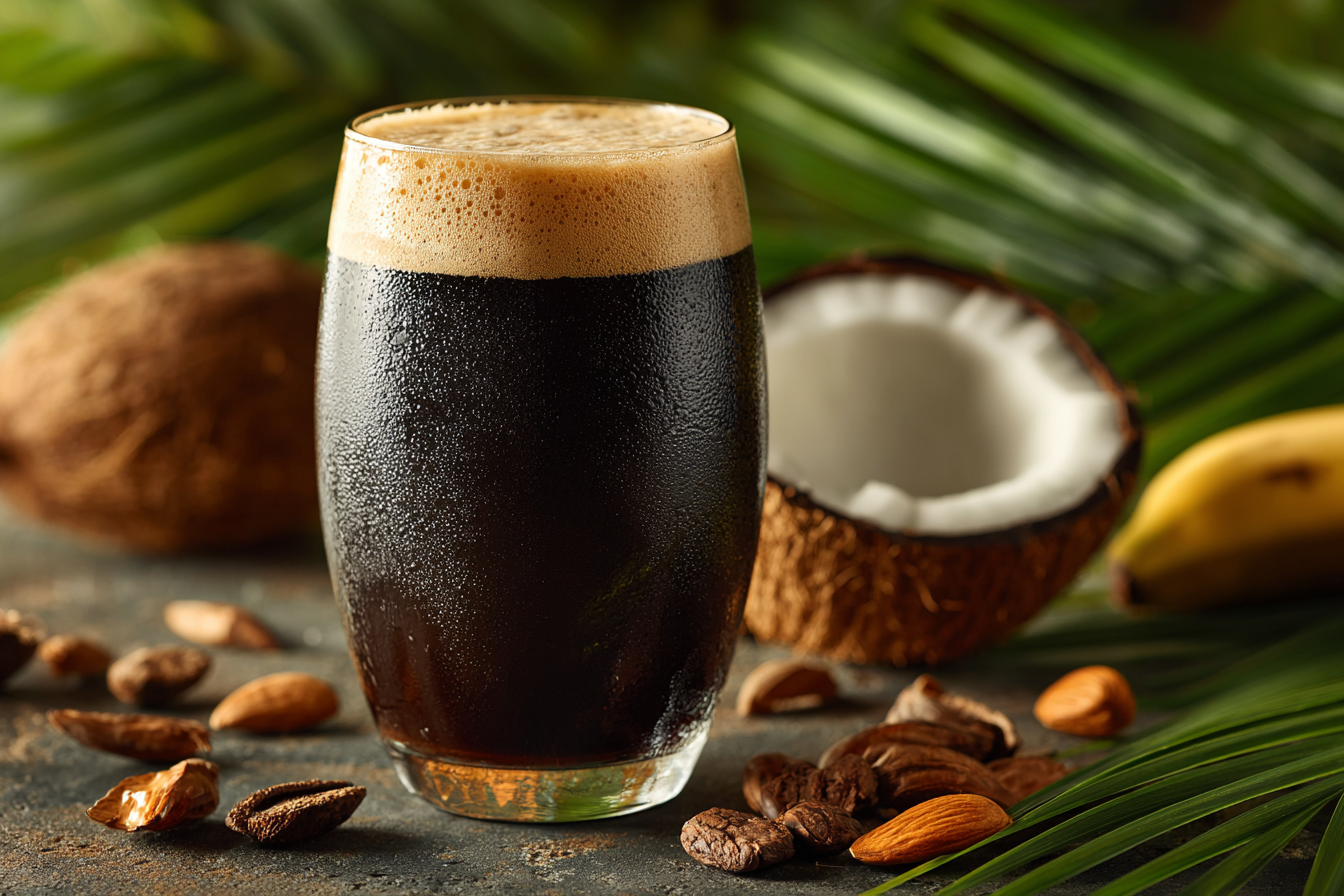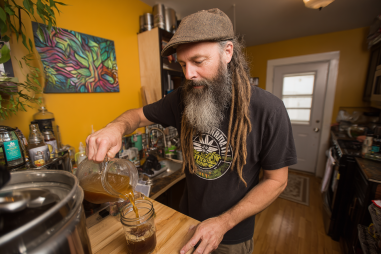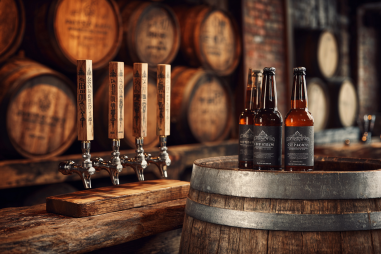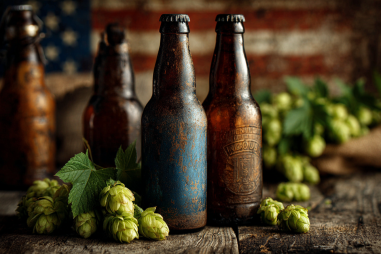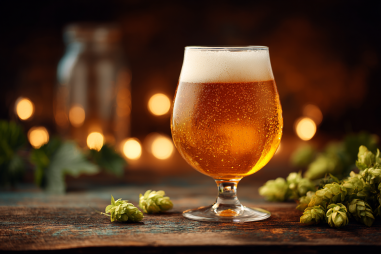Tropical stouts stand out in the vast world of beer styles due to their enticing blend of robust maltiness and vibrant tropical fruit flavors. Unlike traditional stouts that lean heavily into dark, roasted notes, tropical stouts integrate a unique sensory profile that captures a sense of place and climate, often inspired by or originating from warmer, tropical regions. This combination creates a beer that’s both rich and refreshing, inviting drinkers to explore layers of flavor that might surprise even seasoned beer enthusiasts.
Exploring Tropical Stout as a Beer Style
The tropical stout is a fascinating twist on the classic stout, a style traditionally characterized by its deep, roasted malt flavors, often accompanied by notes of coffee, chocolate, and caramel. Tropical stouts evolved primarily in and around tropical climates, such as the Caribbean and parts of West Africa, where traditional stout recipes were adapted to complement local tastes and ingredients. These adaptations often led to the inclusion of malt and adjuncts that bring out tropical fruit characteristics, making the beer livelier and more aromatic.
Unlike heavier imperial stouts or overly sweet milk stouts, tropical stouts strike a balance—retaining the dark, rich backbone of a stout but adding fruitiness and a slightly lighter body. This style is typically medium-bodied, with a smooth finish that lends itself well to pairing with spicy dishes or simply enjoying on a warm day.
Common Malt and Roast Flavors in Tropical Stouts
At the heart of any stout is its malt character. In tropical stouts, this is no different; however, the malt profile often features a slightly different blend of roasted malts, crystal malts, and sometimes caramel malts. The result is a complex maltiness that provides familiar dark chocolate and coffee notes, paired with a subtle underlying sweetness.
The roasted malt flavors in tropical stouts can range from mild toasted bread to moderately roasted coffee, without tipping into the more abrasive or burnt flavors found in other stout variants. This careful roasting balances well with the tropical fruit elements, allowing the malt richness to act as a grounding base rather than overpowering the palate.
Tropical Fruit Notes and Their Sources
What truly sets tropical stouts apart is their signature tropical fruit character. These fruity notes often emerge as hints of banana, mango, pineapple, guava, passion fruit, or papaya, lending an exotic sweetness and tanginess to the beer. But where do these flavors come from?
- Yeast Strains: Some tropical stout brewers use specific yeast strains that produce esters reminiscent of tropical fruits. These esters are aromatic compounds that develop during fermentation and give the beer its fruity nose.
- Malt Varieties: Certain malt selections can contribute subtle fruity undertones that amplify the tropical impression.
- Adjunct Ingredients: While many tropical stouts rely primarily on malt and yeast, some brewers incorporate fresh or dried tropical fruits, or even fruit purees, to elevate these flavors further.
- Water Profile and Brewing Techniques: Brewing water chemistry and fermentation temperature can influence the expression of fruitiness, making the tropical flavors more pronounced or nuanced.
This combination of factors results in a beer that smells vibrant and juicy, often reminiscent of a fresh fruit salad, balanced perfectly by the stout’s darker, roasted backbone.
Bitterness and Hop Characteristics
Hops in tropical stouts tend to play a supportive rather than dominant role. The bitterness level usually ranges from moderate to moderate-low, and the hop varieties selected often contribute subtle fruity or floral notes that complement the tropical profile rather than masking it.
The bitterness helps balance the sweetness from the malts and any fruit adjuncts, ensuring the beer doesn’t become cloying. Common hops used may feature mild citrus or fruity characteristics that sync well with the tropically-inspired flavor profile.
Keep in mind that tropical stouts are not heavily hopped like IPAs or Pale Ales; their appeal relies more on malt complexity and fruity esters than hop-forward bitterness.
Mouthfeel and Body
One of the defining features of a tropical stout is its medium to medium-full body. The mouthfeel is usually smooth and creamy, with a weight that feels satisfying but not overly heavy or thick. This allows the tropical stout to be refreshing and approachable, even in warmer weather.
The carbonation level is generally moderate, providing a slight spritz that helps lift the flavors and balances the richer malt elements. Some tropical stouts may feature a creamier texture from the addition of oats or lactose, but many maintain a clean finish that invites another sip.
How Environment Influences Tropical Stout Flavor
The tropical stout is very much a beer shaped by its environment. The climate, local ingredients, and brewing traditions in tropical regions influence the beer’s character in profound ways:
- Heat and Humidity: Brewing in warm climates encourages lighter handlings of body and sweetness to keep the beer refreshing.
- Local Malts and Adjuncts: Brewers often incorporate native grains or dried fruits, enhancing the beer’s tropical character authentically.
- Cultural Palates: Tropical stouts cater to local taste preferences that favor a harmonious blend of robust and fruity sensations, resulting in a more balanced stout variant.
- Water Mineral Content: The mineral composition of water in tropical regions can impact mouthfeel and hop perception, subtly affecting the overall flavor.
These environmental factors combine to produce a style of stout that is uniquely expressive and resonant with its place of origin.
Popular Tropical Stout Examples and Their Tasting Notes
To better appreciate the tropical stout flavor profile, here are some notable examples from around the world:
- Black Tide Tropical Stout (Jamaica): Praised for its rich roasted malt character on the palate, it layers in vibrant notes of banana and pineapple with a smooth, creamy finish.
- Bells Brewery Expedition Stout (Michigan, USA): Though not tropical by origin, this stout integrates aged malt flavors that develop nuanced fruit notes reminiscent of tropical dried fruits and molasses.
- Goose Island Tropical Stout (Nigeria): A favorite in West Africa, this stout offers roasted cacao and coffee layers balanced by bright mango and citrus peel aromas.
- Caribbean Island Stout (Various Craft Brewers): These local brews often feature adjuncts like coconut or tropical fruit purée, deepening the exotic fruit character while maintaining stout richness.
Sampling these beers highlights how diverse and engaging tropical stout flavors can be, cementing their place as a style that brings something new to stout enthusiasts’ palates.
Savoring the Tropical Stout Experience
Whether you’re a stout veteran or a curious newcomer, tropical stouts offer an exciting journey through complex maltiness and vivid tropical fruit nuances. Their balance of flavors—with just enough roast, a touch of bitterness, and refreshing fruity esters—make them versatile companions for food or a standalone treat on warm evenings.
Next time you come across a tropical stout, take a moment to appreciate the layers: the subtle roasted backbone, the burst of tropical aroma, the smooth mouthfeel, and the gentle bitterness that ties it all together. These beers don’t just quench thirst — they tell a story of place, ingredients, and innovation, inviting you to savor every sip.

